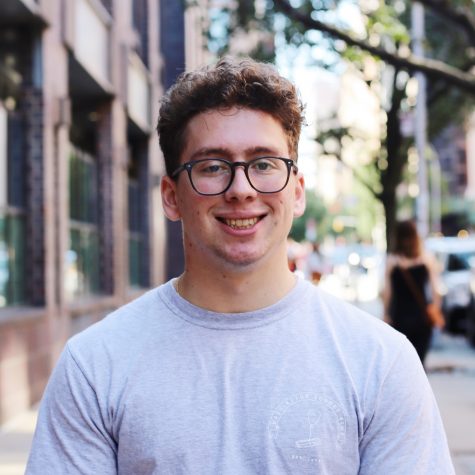Ansari Heard ‘Yes’ When She Didn’t Say ‘No’

January 29, 2018
Recently, the #MeToo movement hit a snag after sexual assault accusations against NYU alumnus Aziz Ansari sparked controversy. If you are not informed on the encounter, read the whole report on Babe.net beforehand. Traditional left-leaning news sources, such as The New York Times and The Atlantic, published opinion articles defending Ansari. Previously, these publications have often been on the side of the victims, so what makes this time different? The answer lies in consent.
To many, the encounter described by Grace (the accuser’s pseudonym) was one that did not scream sexual assault. Grace was not physically forced to do anything and did not initially leave although she had the opportunity to. On the other hand, Ansari acted in a predatory manner. He was unable to read verbal and nonverbal cues — that Grace claims were evident — and did not attempt to clarify during the encounter. Ansari assumed that she wasn’t saying ‘no.’ However, not saying ‘no’ is very different than saying ‘yes.’
Sexual assault is defined by NYU as sexual contact without affirmative consent. While Ansari never heard Grace say ‘no,’ she never expressed affirmative consent: this case is one of sexual assault.
Many articles have come out listing things Grace could have done to prevent this situation, but few point to what Ansari could have done. In the New York Times’ “Aziz Ansari Is Guilty. Of Not Being a Mind Reader,” Bari Weiss suggests that Ansari cannot be held responsible because of the nonverbal cues Grace had sent — moving away from Ansari, pulling her hand away from his penis —were unreadable. My answer to this is that if Ansari cannot read minds, he should initiate his own verbal cues. As a prominent and self-identified feminist, it is surprising that Ansari was so unable to empathize with Grace and seemed unaware of the idea of verbal consent. It shows that in our patriarchal society, even men who consider themselves progressive feel entitled to sex.
Like the two articles mentioned previously, which did not even mention the idea of verbal consent, many people dismiss seeking verbal consent before each sexual encounter as unnecessary and awkward, thinking they can tell when someone wants to have sex with them. However, these same people will claim that Ansari should not be held responsible for realizing Grace did not want to have sex with him. These views conflict because in the former, one states that nonverbal cues are a viable way of getting consent, while the other states that nonverbal cues are unreadable.
This case provides an opportunity for NYU to redefine what is acceptable. Relying on an ability, or lack thereof, to read nonverbal cues for consent can lead people to commit the same inexcusable behavior as Ansari. Let us be better than that. At NYU, we should strive to set a standard of asking for verbal consent each and every time anyone has a sexual encounter because this simple task is a step forward in eliminating a huge problem.
Opinions expressed on the editorial pages are not necessarily those of WSN, and our publication of opinions is not an endorsement of them.
A version of this appeared in the Monday, January 29 print edition. Email Victor Porcelli at [email protected].
























































































































































